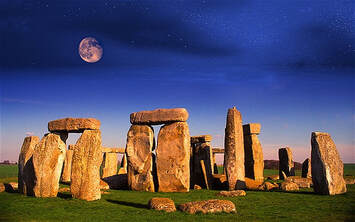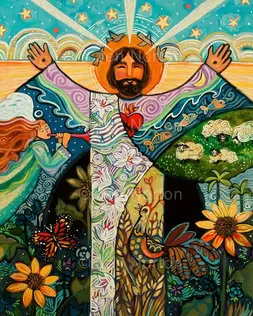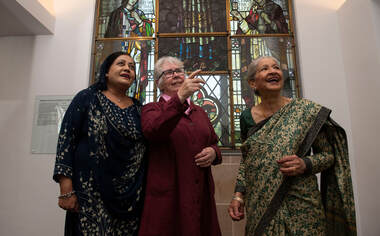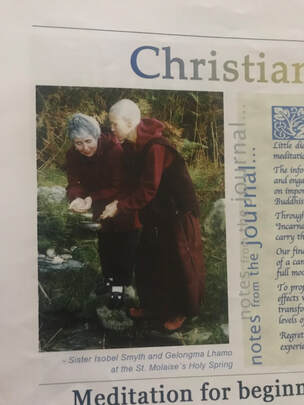
Assisi is the ideal place for such a venture. Beginning with the initiative of Pope John Paul in 1981 when he invited leaders from the major world faiths to Assisi to pray for peace (the first meeting of its kind and one repeated by Pope Benedict and Pope Francis) Assisi has become associated with such meetings. It is also the birthplace of St Francis who has unofficially at least become a champion or, as we say in the Catholic Church, the patron saint of interreligious dialogue. This is based on a story from the life of Francis which recounts how in 1219 when Christian and Muslim forces were locked in combat in Egypt during the 5th Crusade, Francis crossed enemy lines hoping to meet Sultan al-Malik al-Kamil, perhaps hoping to preach the gospel and convert the Sultan and his army but certainly looking for peace. When eventually Francis is admitted to the Sultan’s presence the story goes that both recognised in the other a man of faith and spirituality and spent days if not weeks conversing with one another about God. The visit didn’t bring about peace, but the Sultan gave Francis his protection and the gift of a horn used for the Muslim call to prayer which can still be seen in Assisi today. Frances too was affected by the visit. Not only did he write Praises of God, based on Islam’s 99 names of God but he told his brethren that it was safe to enter the world of Islam and encouraged them to preach the gospel but only sometimes to use words.
Rabbi Alon Goshen-Gottstein is not the only religious leader to choose Assisi as a place of prayer and encounter. Sri Madhusudan Sai is a noted Hindu leader based near Bangalore with centres worldwide, including Assisi. In a recent interview or conversation between these two leaders Sri Madhusudan explained that he was drawn to Assisi because of St Francis’ commitment to poverty and the poor as well as his love for nature. For him the message of Francis and Assisi is universal and a source of inspiration for all, especially the younger generation. St Francis is a saint for our time but for Sri Madhusudan Sai reflecting on the life of saints in all our traditions is a good way of conducting interreligious dialogue. He believes that this is a window into the spirit of our faiths which ties in very well with the intention of the Global House of Friendship and Hope. Especially for young people it is important to give them something that will inspire them to live a meaningful and purposeful life and who better to inspire than the example of men and women who have lived from the heart of faith and not just from its externals. Sri Madhusudan Sai used the analogy of a piece of fruit. The skin and the pith keep the juice intact and when squeezed it is the juice that delights and what remains can be discarded. He is not suggesting of course that religion can be discarded but showing that the life, joy, spirit of the faith is what is important and that the externals are nothing if they do not give access to this inner inspiration. And saints are shining examples of people who have done this.
I like this idea of using the life of saints as a window into a religion and giving an insight into its inner core. One of my earliest memories is of my grandmother, after whom I am named and who died when I was 4 years old, reading stories of the saints to me. They captured my imagination and I felt a real attraction to God, religion and to the adventure that many of them had in their work of service and of spreading the message of Jesus. This was the beginning no doubt of an attraction that led to me eventually entering religious life. And that has been an adventure and one that has led me into the world of other faiths, sharing the message of Jesus, yes, but in an atmosphere of dialogue and mutual learning. For I have come to realise that there are many saintly and inspiring people in all faiths and I have been inspired by them, by their devotion and dedication as much as I have been by saints in my own tradition. I found in their life and in their teachings echoes of my own faith, in spite of the different contexts in which they lived.
I do like this approach and believe it could be a good way of engaging people in interreligious dialogue. It’s something I must pursue.











 RSS Feed
RSS Feed
